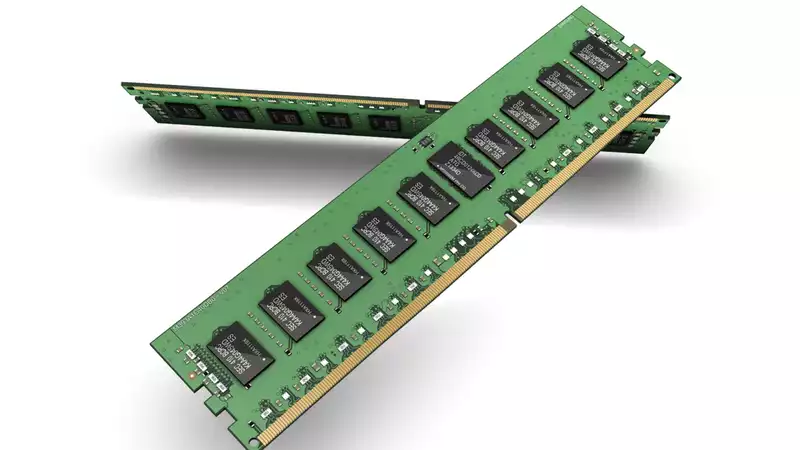DDR5 is coming! According to Samsung, we won't have to wait much longer for the next generation of DDR5 system memory to make its way into our systems. Whether it will be in gaming systems or not will have to wait for Intel and AMD to announce. But there is still plenty to get excited about now that the memory manufacturing giants are starting up factories for DDR5 mass production in 2021.
The news comes from Samsung, which just announced its first EUV-based DRAM, the D1x. This new DDR4 chip will usher in more EUV-based DDR5 products next year, including those used in mobile, server, data center, and, you guessed it, PCs. [DDR5 will double the available data rate of DDR4 currently used in most gaming PCs manufactured in the late 2010s. The standard set by its governing body, JEDEC, also outlines a fairly spectacular increase in density per chip, which will allow chipmakers to pack more memory into a smaller footprint when DDR5 arrives. [Regarding Extreme Ultraviolet lithography (EUV), this is a lithography technology that can reduce the complexity of silicon fabrication. In theory, chipmakers of all shapes and sizes, including manufacturers of CPUs and GPUs, could simplify the entire lithography process by using shorter wavelengths of light. It sounds like a great technology, but it is also costly, and no one has yet figured out the "profitability" of it.
However, it appears that some major silicon manufacturers are starting to work on this new technology: TSMC, which manufactures Nvidia's Turing GPUs and AMD's entire 7nm lineup, is already producing some chips at the EUV-based 7nm+ node, but no chips that matter to us PC gamers AMD seems to be looking for an enhanced 7nm node for Zen 3 and RDNA 2.0 to replace the traditional DUV (deep ultraviolet) method.
The latest leaks regarding Intel's 2021 plans show that Intel is currently committed to maintaining the status quo of DDR4 in the next generation Intel Rocket Lake CPUs. However, it is possible that AMD's future Zen processors will adopt the next-generation memory standard first. Either way, gaming PCs will not be at the forefront of DDR5 adoption. Boo
U.S. memory maker Micron has already sampled its next-generation DDR5 Registered DIMMs (RDIMMs), and DDR5's 1.85x performance improvement over DDR4 is a sure sign of what the future holds for PC gaming.
Samsung's 4th generation 10nm class (1a) EUV-based 16Gb DDR5/LPDDR5 (fwoo) memory is expected to begin mass production during 2021. If Samsung expects demand for DDR5 to grow, the computing industry as a whole will no doubt change in line with that expectation; let's hope PC gaming doesn't lag too far behind.


Comments